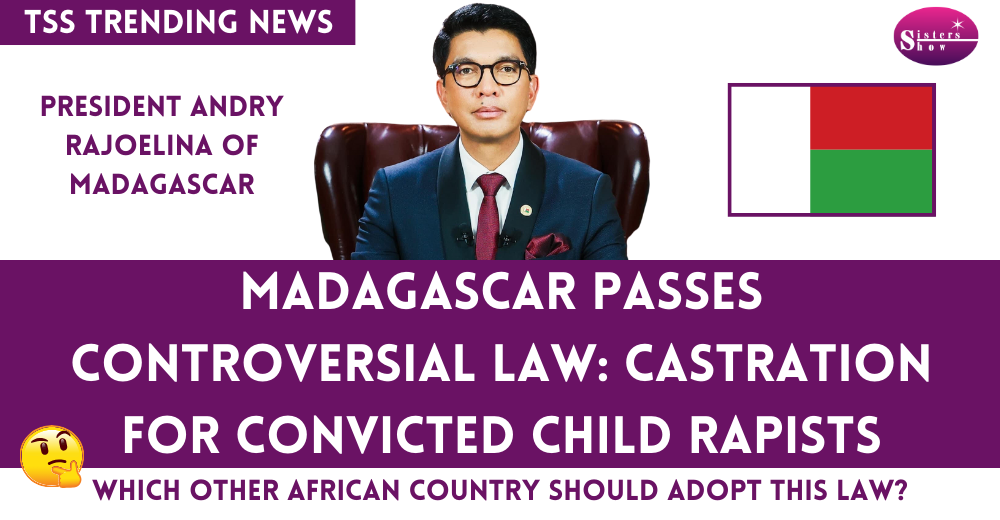
Blogs, Politics & World Affairs
Please enter keywords

In a move aimed at curbing the alarming rates of child sexual abuse, Madagascar has recently enacted a contentious law permitting the castration of individuals convicted of raping minors. This groundbreaking legislation allows for both chemical and surgical castrations as punitive measures against perpetrators of these heinous crimes.
Under the new law, the severity of the punishment is determined by the age of the victim. Perpetrators found guilty of raping children under the age of 10 will face surgical castration, while those convicted of assaulting minors aged 10 to 13 may be subjected to either chemical or surgical castration. Offenders involved in cases where the victims are between the ages of 14 and 17 will be subject to chemical castration. However, it’s important to note that in certain cases, such as those deemed particularly egregious, stricter penalties such as life imprisonment may still apply.
The law has sparked intense debate both domestically and internationally. While some Malagasy citizens and activists have voiced their support, organizations like Amnesty International have condemned it, labeling it as “inhumane and degrading.” Despite the controversy, the government maintains that such measures are necessary to address the pervasive issue of child sexual abuse and protect vulnerable minors from future harm.
This move by Madagascar sheds light on the prevalence of rape culture not only in the country but also across the African continent. The implementation of such legislation raises questions about the effectiveness of punitive measures in deterring sexual violence and whether other African nations will follow suit in adopting similar laws to combat this pressing societal issue. As the debate continues, the focus remains on finding comprehensive solutions to ensure the safety and well-being of children everywhere.
Please enter keywords

It's free. No subscription required